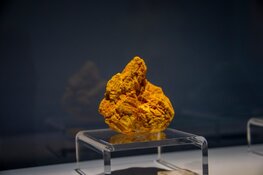Byron King: Outstanding Investments focuses on large-cap companies and Energy and Scarcity deals with smaller-cap companies. I cover energy investments in both and, in particular, oil and gas, oil services, uranium, geothermal and other energy cats and dogs. I get into oil sands in Canada, shale gas in the U.S.—things like that.
TER: You also write for Whiskey and Gunpowder, which goes out to a broad audience well after the information is published in Outstanding Investments and Energy and Scarcity. In a recent issue, you reported that the Obama administration could soon loosen the restrictions on offshore drilling in the Gulf of Mexico (GOM) that were imposed after BP's Macondo accident. What are you hearing on that now?
BK: Well, I'm not hearing anything different. On one hand, you've got Michael Bromwich—the new head of what was called the Mineral Management Service, which is now the Bureau of Ocean Energy Management. He's saying we will have deepwater drilling.
You hear these good things, but then you hear the government wants to have more knowledgeable, independent regulators overseeing offshore drilling. My question is: Who are these human beings? Only a handful of people in this country are physically and intellectually qualified for that job. I don't know who the government will find or how quickly these people could be hired and trained.
The current moratorium is supposed to expire Nov. 30, 2010—28 days after the election. A lot is going to happen between now and the election and between the election and Nov. 30. Yes, the moratorium may expire; but will the people overseeing these things still be around to implement the changes?
The oil industry is desperately hopeful it can get back to deepwater drilling. This is costing a lot of people a lot of money. You've got rigs and rig crews that are idle. To the industry's credit, it hasn't had mass layoffs because it might not get those people back when they're needed. Only a handful of rigs has left the GOM. It's a question of how long the oil industry can absorb this hit. Every one of those idle rigs has probably 1,500 jobs directly associated with it.
TER: You recently interviewed Chevron Corporation's (NYSE:CVX) Ali Moshiri, who's dealt with offshore drilling in his 30 or so years with the company. He's dealt with wells much deeper than Macondo. What did he have to say about offshore drilling in the GOM?
BK: Ali is the head of Chevron's Latin America/Africa division, which produces about 850,000 barrels of oil per day (bpd), or about 1% of the world's daily oil output. That's a lot of responsibility.
As a deepwater developer, Chevron has a very large, very aggressive offshore program. It drills a lot of wells that are deeper than the Macondo. That well was in 5,000 feet of water; Chevron's drilling wells in 10,000 feet of water. Macondo was not at the limits of modern technology.
Mr. Moshiri said that if Chevron can get the U.S. regulatory climate working, it has great hopes for continuing to drill deepwater wells in the GOM. There are super huge oil fields out there—that's where the big oil is. There's a lot of oil left to find onshore, but finding any more Saudi Arabias or Kuwaits onshore is going to be difficult.
The Brazilians have found the equivalent of Iraq off the coast of Brazil. They're very humble about it, saying: "Yes, we found 15–20 billion barrels of reserves," or what have you. But, when you talk to the people who really know, it's more like 5x–6x that amount. They just don't want to talk about it for political reasons.
People in Brazil have visions of sugarplums in their heads and have already spent the money they're not going to see. I mean, this money isn't going to come in for 20–30 years, but it's already spent if you talk to the Brazilian politicians.
TER: Last time you talked with us, you mentioned some drilling suppliers that have seen their share prices hit by the drilling moratorium. What suppliers could benefit from a reverse on the moratorium?
BK: When the moratorium kicked in, the oil service group declined pretty much across the board because GOM deepwater drilling is a big part of their business.
I've looked at a couple of companies that I think have great fortunes in front of them. Schlumberger Ltd. (NYSE:SLB) is always too expensive; that's because it's such a good company, it never gets cheap. If Schlumberger ever gets cheap, buy your shares when you can. Right now, I think Schlumberger is in that $50 range. It's a really nice play over the next 12–18 months. Oil is under $75 a barrel; but if it goes to $85 or $90, that $60 share could go to $90.
Another great company tainted by the BP blowout that will do well in the future is Halliburton Co. (NYSE:HAL)—a key player in deepwater around the world. It helped Petrobras (NYSE:PBR) drill the original Tupi offshore well in Brazil where 8 billion barrels of oil were found. Halliburton supplied the equipment and did the cementing job, as well.
But I live in Pennsylvania, where we talk about the development of the Marcellus Shale. Some of the most difficult, most complicated wells being drilled in the Marcellus are being drilled by, or in cooperation with, Halliburton—its technology is critical to future energy development.
Another large oil services company that I like is Baker Hughes Inc. (NYSE:BHI). The stock has been down; but they just hired a new CEO, so I think we'll see more of an emphasis on the bottom line. It will become more profitable and, as a result, Baker Hughes will see very significant share-price appreciation over the next 12–18 months.
TER: You recently visited Serbia. When most people think about hydroelectric power, they think of state-run utilities—not necessarily investment opportunities. Yet that's precisely what you saw on your recent visit to Serbia. Tell us about what you witnessed there.
BK: I looked at a couple of different energy projects, one of which represents one of the most important new hydropower developments in Europe. Serbia is in the Balkans, a series of mountains. People might not really have an appreciation for how much snowpack is there in the winter. Serbia gets a lot of water, so it has pretty significant rivers.
In the days of communism in old Yugoslavia, the communists wanted to dam up every river; but with limited resources, not everything got built. When Yugoslavia fell apart in the 1980s, and then during the wars of the 1990s, everything just stopped; the region saw zero development for years.
Now comes along a very nimble Canadian company called Reservoir Capital Corp. (TSX.V:REO), which managed to get into former Yugoslavia in the last few years and pick up the concessions to build two low-head hydro dams on the Lim River in southern Serbia—where the communists wanted to build one of these giant dams. Today, you can't build a gigantic dam for environmental reasons; but you can build two much smaller dams and still capture a lot of potential power.
You're right; it's very uncommon to associate big hydro developments with private capital. But Reservoir has a license and solid support from the Serbian government and a lot of the preliminary engineering work is already done. I visited the site. There's a whole lot of water coming out of those mountains in the middle of August, let alone when the rains come in September.
TER: I suppose such a cash-strapped country doesn't have the money to develop these resources, so they have to privatize them.
BK: Yes, only in the last few years has Serbia made a comeback in terms of rebuilding its economy. But where are you going to get the capital to build a dam? A small company like Reservoir has been able to get the concessions, do the engineering work and build good relationships with the government and various communities around the dams.
Reservoir is now negotiating a power purchase agreement (PPA) with electric utilities in Italy, which is not far from Serbia. There is electrical infrastructure there to wheel the power. Once you get the PPA nailed down, that is a bankable document; you borrow against it for the capital to build the dam.
TER: Reservoir is also exploring for copper and gold, as well as geothermal there.
BK: Now you're getting into the other side of Reservoir. I like it as just a hydropower play, but this is the sweetener. It has also gained control of numerous geothermal sites in Serbia, which I visited. There's so much hot water bubbling out of the ground; 2,000 years ago, the Romans built a bath in one of those areas. That's actually one of Reservoir's issues—the geothermal sites are right on top of priceless archeological sites. But that part is doable.
The company's got boiling water coming up to the surface and, in other places, it has steam. Reservoir could do primary geothermal—using just the steam—or it could use a binary system wherein hot water is used to spin a turbine. The question is: Will the company do it as Reservoir, or will it spin out the geothermal assets into another play?
If that's not sweet enough, Reservoir has also gained control of mining concessions next to one of the largest copper mines in Europe—Bor in southeastern Serbia. It's been an open-pit copper mine for probably a century. It is a gigantic mine that, quite frankly, is an environmental mess. But the spoil pile from this environmental mess contains higher-grade copper than is mined in most of the rest of the world. The company also controls the mining rights north and south of Bor and on strike. Reservoir's been conducting an aggressive drilling program. I could literally put my finger on the copper ore in the core they pulled it out of the ground.
TER: It's almost like Reservoir met with the government officials and went on a one-stop shopping spree.
BK: It was one-stop shopping. But I guess it's more like Reservoir was nimble enough to get into the country when it started to form a new government after the civil war. It's really quite a story. I don't want people to be confused by the fact that it's a mining, geothermal and hydropower play. Reservoir's a great company. If you buy a share—in a year or 18 months, you could wind up with three different shares of stock.
TER: But did the Serbian government give too much away?
BK: These are not sweetheart deals. I mean these deals have work requirements; they have timetables. Fortunately for Reservoir, its management is good enough to do all these things. They've hired local people to do a lot of the work. I've met the company's world-class geology team. These guys are really good and they know their stuff. Reservoir employs geologists who have this classical, old European-style training mixed with the ability to work with modern technology. That's a rare combination.
TER: You mentioned geothermal there. We recently interviewed Edward Guinness of the Guinness Atkinson Alternative Energy Fund. There are 30 companies in that fund but only two are geothermal companies. He said the reason for that is because geothermals are "lower-quality companies" that they might have concerns about, and that the number of companies in the space has been trading at very, very high multiples. Would you agree?
BK: I wouldn't disagree with it. If you want to own a share of the largest privately owned geothermal company in the world, you should buy a share of Chevron because it produces more geothermal power than anybody—and does it in Indonesia.
Not long ago, I asked the Chevron people why they weren't doing geothermal in North America. In a very diplomatic way, they said that in North America they would rather use their money to drill oil wells. This is Chevron—a sophisticated, well-financed company; and that's what they think when they look at North American geothermal. Don't do it. Drill for oil instead. Of course, that's Chevron.
TER: I'm sure drilling for oil is more cost effective because they already have oil infrastructure in place in America. The geothermal companies still have to build it.
BK: You have a couple of different things going on in North American geothermal. You have a bunch of speculators who've gone around Idaho and Nevada and eastern Oregon buying up the low-hanging fruit in terms of controlling the leases. But they're grossly undercapitalized and largely unable to develop those assets.
In public hands, you've got a number of smaller geothermal companies with limited capital. What they're doing, they're doing slowly. Their share prices tend to bounce around depending on which newsletter writes a good article about them. It's a tough way to make a living.
Now you're starting to see "rollups." You've got the Magma Energy Corp. (TSX:MXY) power play. You've got the Ram Power Corp. (TSX:RPG) play where management has started to bring some smaller companies into the fold. Ram Power brought in Polaris Geothermal Inc., which was working in Nicaragua. They brought in Western Geothermal Partners LLC, which was working in the geysers of California and in Chile. They're kind of cat-and-dog plays, but they're trying to roll them up into a larger play. I think there is a good future for geothermal in the U.S. electric mix. It's baseload power. There are good tax benefits to it. Environmentally, it's a no-brainer because there are no CO2 emissions.
I was talking to a guy who was drilling a geothermal well in California's Napa Valley. He said: "I've drilled oil wells and I've drilled geothermal wells. I'm using almost the same rig, the same pipe and the same drill bit to drill a geothermal well in California; but I've got people inviting me to their houses for dinner, so I can tell them about this geothermal project. If I was drilling an oil well, I'd have to have armed guards."
But you shouldn't dismiss Mr. Guinness' critique out of hand. The geothermal sector does have a lot of lower-quality companies that have traded, over the past couple of years, at multiples that were simply too high.
TER: Let's talk about uranium. John Rowe, CEO of Exelon Corporation (NYSE:EXC), which is the largest nuclear power producer in the U.S., recently told Bloomberg that "as long as natural gas is anywhere near the current price forecast, you can't economically build a merchant nuclear power plant" in the U.S. Are low natural gas prices inhibiting the price of uranium?
BK: That's a good one. Well, considering how many plants Exelon owns, I'm not about to tell the CEO he doesn't know what he's talking about. But here's my view—we've heard a lot of really good news about natural gas in the U.S., basically because of the shale gas plays. Technology has unlocked literally hundreds of trillions of cubic feet of new natural gas. People are talking about many decades' worth of abundant, cheap natural gas—maybe a century or more of supply.
My concern with that is the hype. I think the U.S. energy economy has 10–15 really good years in front of it, based on shale gas. Then I think we will have some serious gas issues facing us by the year 2025, and certainly by 2030. When you look at permitting, construction and operating cycles, 2030 is not that far away. The people not building nuclear plants are going to be sorry in about 15–20 years when the natural gas situation tightens up in North America.
When you look at the rest of the world, there are lots of nuclear reactors being built. China, Brazil, South Africa and some parts of Europe are taking a hard look at nuclear power. That's creating a buying opportunity for good uranium plays right now.
TER: What are some of your favorites in that space?
BK: My absolute immediate favorite play is Uranium Energy Corp. (NYSE.A:UEC). That's because UEC has managed to resurrect the uranium-solution mining industry in the great state of Texas. It's re-established the uranium production industry that, literally, collapsed in a matter of months back in the mid-1980s. Companies like Westinghouse Electric Company LLC, U.S. Steel Corp. (NYSE:X) and Union Carbide Corporation shutdown, took their exploration and production materials and stuck them in warehouses.
UEC has put all that back together in the last couple of years, starting with one major project southeast of San Antonio where UEC will be producing uranium by about November. UEC is on the cusp of having cash flow with a modern, environmentally responsible uranium-mining program. I don't mean digging dirt—I'm talking about in-situ leaching, which, basically, pumps hydrogen peroxide down one hole to dissolve the uranium in the sands, and then pumps it up another. There's a special resin that they use to remove the U3O8 and make yellow cake. I've been there, seen the site and the holes in the ground. I've seen the processing facility—it's all there. My most exciting uranium play is UEC.
TER: Maybe one more before we go?
BK: Another exciting uranium play that I really like is Manhattan Corporation Ltd. (ASX: MHC). The CEO, Allen Eggers, is the kind of guy you want to hang around with because he started Summit Resources Ltd. (ASX:SMM) from nothing and wound up selling it for $1.2 billion to Paladin Energy Ltd. He's a guy that knows how to take a dirt patch in the middle of nowhere to a finished product that you can sell to a major player.
Having done that once, he's decided to do it again. Manhattan has the Double 8 uranium deposit, which is a development project. The company's still drilling and scoping out the resource. It's in a known uranium district—an old river basin filled with roll-front uranium deposits. It's very much amenable to in situ leaching. I think that's going to turn into a good play for a patient investor over, say, the next 24 months.
TER: Do you have any final thoughts on the energy space?
BK: The thing to keep in mind is not to be U.S.- or North-America focused when it comes to energy because the rest of the world has figured out it also needs energy. They are exploring. They are drilling. They are developing. There are many companies in many locales that are not U.S. names, but they are still doing great things. You can buy some of them on the U.S. markets, while others require you to go overseas. You have to keep looking. There are lots of opportunities out there.
Look for Byron King's comments on precious metals and rare earths on The Gold Report, Byron King Plays Gold, Silver and REEs.
Byron King writes for Agora Financial's Daily Reckoning and Whiskey and Gunpowder (a self-styled "independent investor's daily guide to gold, commodities, profits and freedom"). Byron edits two newsletters: Energy & Scarcity Investor and Outstanding Investments. He studied geology and graduated with honors from Harvard University and also holds advanced degrees from the University of Pittsburgh School of Law and the U.S. Naval War College. Earlier in his career, Byron worked as a geologist for Gulf Oil in the exploration and production division. He served for many years in both the active and reserve components of the U.S. Navy. Byron also, at a different time, practiced law, focusing on bankruptcy and other contentious matters involving people and money. Byron has written extensively about peak oil and world energy developments. His expertise includes precious metals and alternative energy sources, such as solar, wind and geothermal. Byron has also advised the U.S. Department of Defense on national energy policy.
Want to read more exclusive Energy Report interviews like this? Sign up for our free e-newsletter, and you'll learn when new articles have been published. To see a list of recent interviews with industry analysts and commentators, visit our Expert Insights page.
DISCLOSURE:
1) Brian Sylvester of The Energy Report conducted this interview. He personally and/or his family own shares of the following companies mentioned in this interview: None.
2) The following companies mentioned in the interview are sponsors of The Energy Report: Reservoir Capital and Ram Power.
3) Byron King: I personally and/or my family own shares of the following companies mentioned in this interview: None. I personally and/or my family am paid by the following companies mentioned in this interview: None.









































